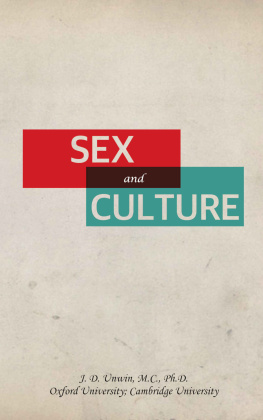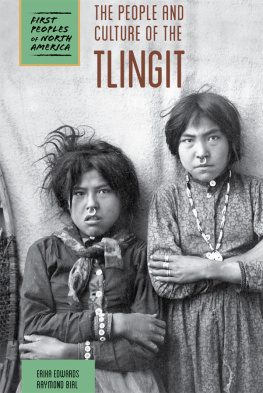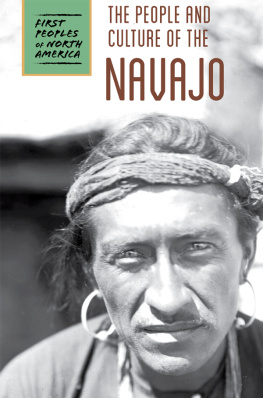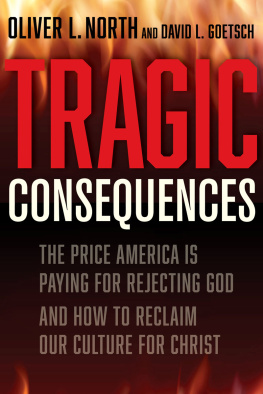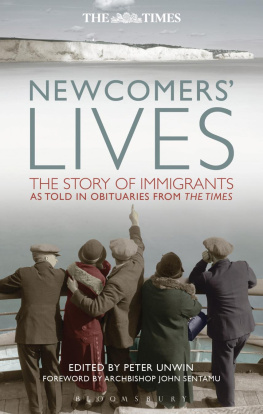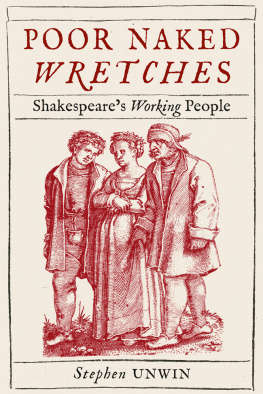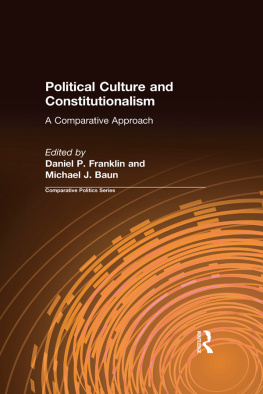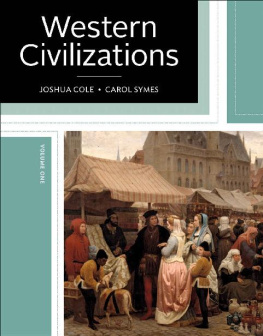Joseph Daniel Unwin - Sex and Culture
Here you can read online Joseph Daniel Unwin - Sex and Culture full text of the book (entire story) in english for free. Download pdf and epub, get meaning, cover and reviews about this ebook. year: 1934, publisher: CreateSpace Independent Publishing Platform, genre: Religion. Description of the work, (preface) as well as reviews are available. Best literature library LitArk.com created for fans of good reading and offers a wide selection of genres:
Romance novel
Science fiction
Adventure
Detective
Science
History
Home and family
Prose
Art
Politics
Computer
Non-fiction
Religion
Business
Children
Humor
Choose a favorite category and find really read worthwhile books. Enjoy immersion in the world of imagination, feel the emotions of the characters or learn something new for yourself, make an fascinating discovery.
- Book:Sex and Culture
- Author:
- Publisher:CreateSpace Independent Publishing Platform
- Genre:
- Year:1934
- Rating:4 / 5
- Favourites:Add to favourites
- Your mark:
- 80
- 1
- 2
- 3
- 4
- 5
Sex and Culture: summary, description and annotation
We offer to read an annotation, description, summary or preface (depends on what the author of the book "Sex and Culture" wrote himself). If you haven't found the necessary information about the book — write in the comments, we will try to find it.
Sex and Culture — read online for free the complete book (whole text) full work
Below is the text of the book, divided by pages. System saving the place of the last page read, allows you to conveniently read the book "Sex and Culture" online for free, without having to search again every time where you left off. Put a bookmark, and you can go to the page where you finished reading at any time.
Font size:
Interval:
Bookmark:
SEX AND CULTURE
BY
J.D. Unwin, M.C., PH.D.
LATE (1914) CLASSICAL EXHIBITIONER, ORIEL COLLEGE, OXFORD;
LATE (1928-1931) FELLOW COMMONER RESEARCH STRUDENT, PETERHOUSE, CAMBRIDGE
Public Domain. Originally published by Oxford University Press London: Humphrey Milford 1934
ISBN: 1979867046
ISBN-13: 978-1979867047
Y. J. L.
OPTIMAE HVIVS OPERIS ADIVTRICI
LIMANDO EXPOLIENDO
PREFACE
THE writing of this treatise was originally completed in 1932; but there were several reasons why it should not be published immediately; and I put it away, and wrote an Abstract of it. This Abstract, entitled Sexual Regulations and Human Behaviour (Messrs. Williams & Norgate, Ltd.), was published in October 1933. The little book was offered as a mere summary of a future volume; and the complete work is now presented.
If I may judge from the nature of the welcome extended to the Abstract, some readers may be disappointed to find that so large a part of the complete treatise is devoted to uncivilized peoples. I too have a greater personal interest in the ideas and behaviour of civilized societies; and, if I had been concerned with the mere proving of a thesis (in the sense in which the word is understood by those who adopt comparative methods), I should probably have dismissed uncivilized societies with the eclectic summary that is usually given to them, and confined my serious discussion to some highly selected historical data. But I have not tried to prove a thesis, and have none to prove; I have merely conducted an inquiry; and in such a case the importance attached to any society, civilized or uncivilized, must be in proportion to our knowledge of it. I wish to emphasize this. When I started these researches I sought to establish nothing, and had no idea of what the result would be. With care-free open-mindedness I decided to test, by a reference to human records, a somewhat startling conjecture that had been made by the analytical psychologists. This suggestion was that if the social regulations forbid direct satisfaction of the sexual impulses the emotional conflict is expressed in another way, and that what we call 'civilization' has always been built up by compulsory sacrifices in the gratification of innate desires. The psychologists arrived at this conclusion after inquiring into the nature and causes of mental disturbances; they made no attempt to fortify it by a reference to cultural data; so I decided to investigate the matter. I began in all innocence; had I realized how greatly, as the result of my work, I should have to revise my personal philosophy, I might even have hesitated to begin at all; I was so far from desiring to illustrate a personal conviction that I always struggled against arriving at the conclusions which the evidence appeared to force upon me; and I continued to work, resisting every temptation to speak, until I was satisfied that I could find no exception to the apparent rules. I then collected so much of my material as seemed necessary and advisable. This treatise is the result.
I have had to omit many uncivilized societies which at first I proposed to include because I found that our information concerning them did not reach the standard of adequacy that I decided to adopt. Thus I have excluded the Australian aborigines, and also many Bantu and American Indian peoples of whose culture I made a preliminary examination. I discuss the SE. Solomon Islanders (Melanesia), but have not regarded our knowledge of the other Solomon Islanders as good enough to justify their inclusion. The same remark applies to most of the Melanesians of New Hebrides and New Guinea. My list of Polynesian and Micronesian societies also is shorter than I should like it to have been. It includes the Maori, Samoans, Tongans, Tahitians, and Gilbert Islanders; and I mention the Hawaiians; but I make no reference to the Hervey (Cook), Ellice, Marshall, Pelew, Marquesas, and Caroline Islanders. No people are more fascinating than these; but our information concerning them is scattered, scanty, and of doubtful reliability. The quality of African ethnography, too, is uneven; and though it was disappointing to have to exclude such societies as the Bari, Kavirondo, Konde, Bushongo, Bambala, and Ibo- and Edo-speaking peoples (to mention a few of the African societies which at first I proposed to include and later decided to omit), I was not impressed by the quality of the available evidence in regard to their behaviour. I also studied the Veddas, Todas, Oraons, and other famous peoples of India and Ceylon, but did not feel able to place the requisite value upon our knowledge of them. I have included twenty-eight American Indian societies; and in their case my choice has been exercised in an apparently arbitrary manner. From my original list I have deleted the names of the Ahts (Nootka), Kwakiutl, Kootenay, Cheyenne, Delaware, Seminole, Mohave, and some Shoshonean units; but there is no doubt that our knowledge of some of these tribes is equal to that of the Lillooet, Shuswap, and Thompson, all of which I have included. The reason is that among the American Indians there was an intense variety within the cultural pattern (in my sense of the word), and I was anxious to examine as many societies as I could in order to see if there was a change in the cultural pattern itself. A protracted search failed to reveal such a change; but the result of it was that when I collected my material on the American Indians I was somewhat embarrassed by its quantity. Some societies, like those of the Haida, Ojibwa, Dakota, and Crow, could not possibly be omitted, for they were of vital importance and our information concerning them is comparatively good; and from the remainder I simply chose such a number as might be considered representative.
In all I discuss eighty uncivilized societies, and from the nature of their cultural behaviour make my first induction. In the cultural behaviour of the omitted societies there was not, so far as my knowledge goes, any item that militates against that induction; and I mention the fact of their omission in order to inform the critical reader that my inquiry has actually covered a slightly wider field than that covered by the printed treatise.
As to civilized societies, our comparative ignorance of social history is such as to preclude inductive reasoning concerning the greater part of it. This cannot be too often or too emphatically stated. I have even gone so far as to say bluntly, in my first note, that researches based on historical evidence alone cannot claim to be exhaustive. In saying this, I am thinking particularly of social regulations and conventions; and I confess that I view with alarm the current habit, deplorably widespread among historians and antiquarians, of assuming that the regulations and conventions that prevailed in a century of which we have direct knowledge prevailed also in a preceding or in a succeeding century, of which we may have no direct knowledge at all. Whenever our knowledge is complete, we find that in any vigorous society the method of regulating the relations between the sexes was constantly changing; and, unless there is direct evidence, it is wrong to assume that in any such society social laws were ever static and unchanging, even for three generations.
My inductive survey of civilized societies is limited to the Sumerians, Babylonians (to twentieth century B.C.), Hellenes, Romans, Anglo-Saxons, and English. I also make a few references to the Arabs (Moors), and a deductive suggestion about the Persians, Macedonians, Huns, and Mongols. The brevity of the discussion is chiefly due, as I have said, to the comparative scantiness of our knowledge of other ancient societies; but I also felt that if I descended into too much detail, the significances I wished to convey would be obscured. For these reasons I have refrained from discussing many societies which I should like to have discussed. Thus the Cretans, Hittites, Assyrians, and Hindus have been entirely excluded. I make a passing reference to the early vigour of the Teutonic peoples, but the subsequent lethargy of, for instance, the Visigoths, the Lombards, and the Merovingian dynasty, is not even mentioned. Teutonic law, indeed, is only described in its relation to Anglo-Saxon customs. I have also thought it better to omit any reference to the rise of the Sassanids, to the age of Heraclius, and to those other great changes that took place in western Europe, north Africa, and western Asia after the fall of the Western Roman Empire and before the Mohammedan conquest; and I have tried to avoid unnecessary controversy by cutting short the presentation of the Roman evidence as soon as I have summarized the legal changes that took place between the traditional foundation of the consulate and the principate of Augustus. Of the events of the next three centuries I merely offer a general indication; my reasons for doing so are stated or implied in the text. As for the Venetians, Portuguese, and Spaniards, I have done no more than hint at the apparent reason for the uneven energy they displayed at different times; and I have left the reader to judge for himself the relevancy of my conclusions to the historical careers of the Prussians, Dutch, French, and other modern societies. The sacrifice of some of this material was painful; but I thought that if I included it, the inductive character of my work would be violated, or at any rate imperilled.
Font size:
Interval:
Bookmark:
Similar books «Sex and Culture»
Look at similar books to Sex and Culture. We have selected literature similar in name and meaning in the hope of providing readers with more options to find new, interesting, not yet read works.
Discussion, reviews of the book Sex and Culture and just readers' own opinions. Leave your comments, write what you think about the work, its meaning or the main characters. Specify what exactly you liked and what you didn't like, and why you think so.

